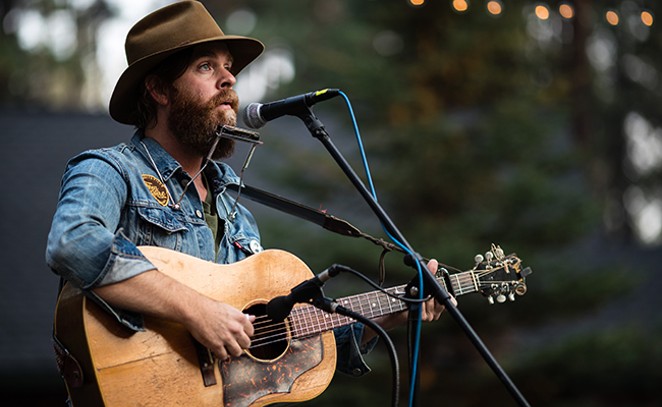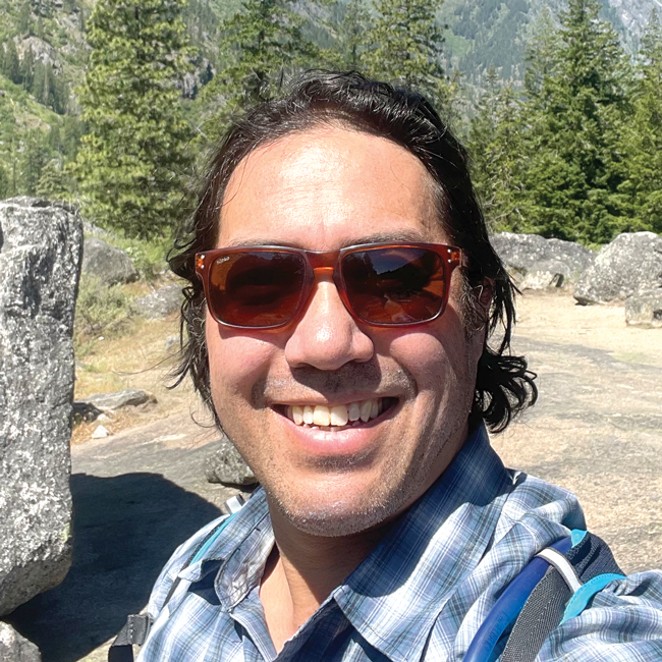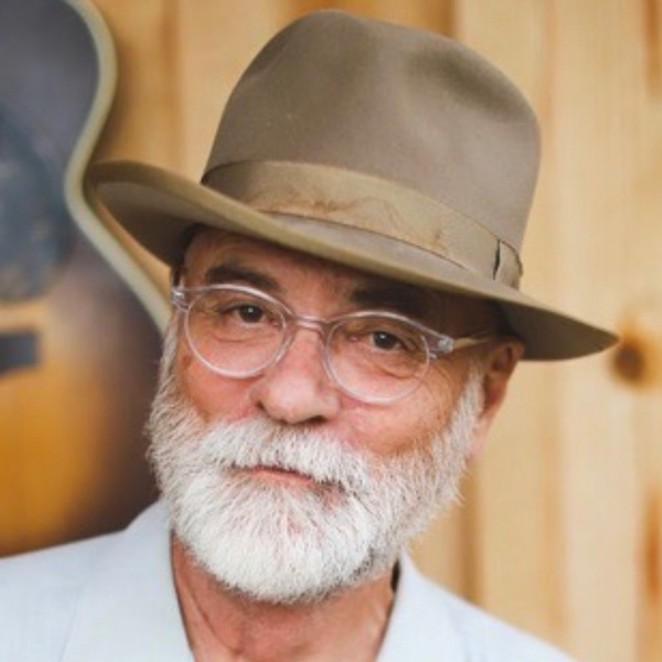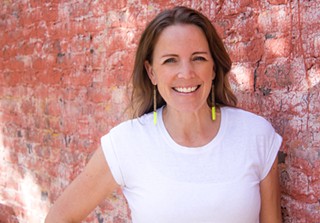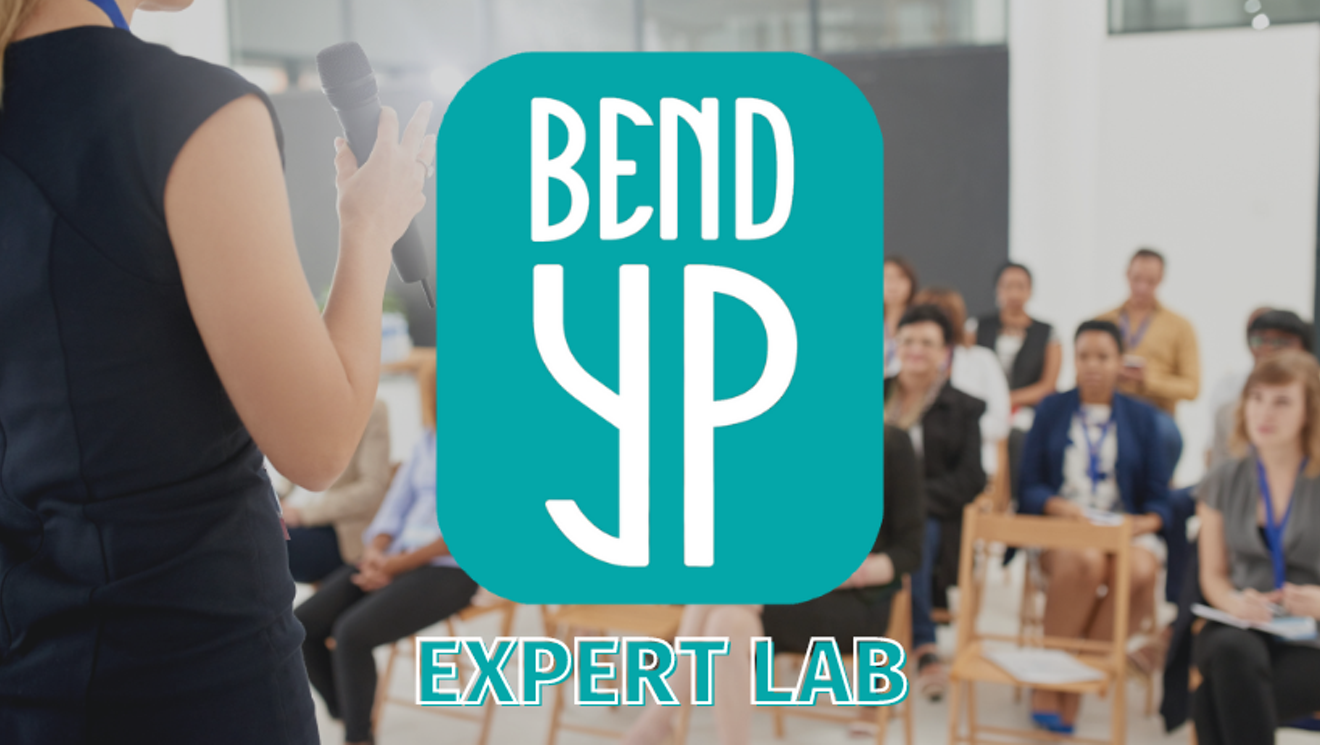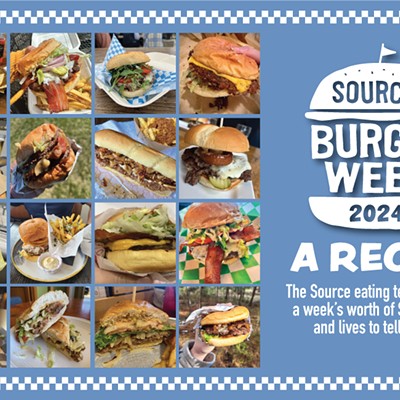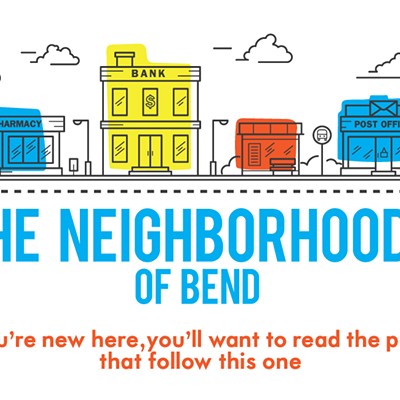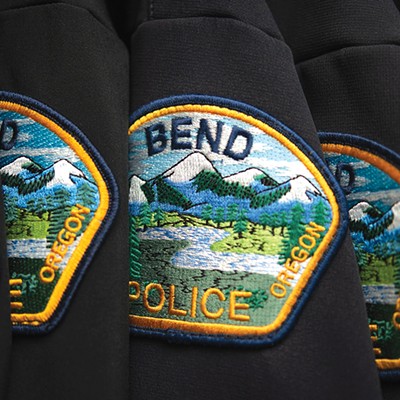Those who have attended the Sisters Folk Festival or any of its special programming throughout the year already are in the know, but it bears repeating: the impact of this entity on Sisters, and wider Central Oregon, is immense. What started as a small festival celebrating folk music in the shoulder season in the small town of Sisters has grown to include songwriting and instrument-making classes in local schools, a songwriter's academy connecting experienced and emerging musicians, year-round concerts, fundraisers that are events all in themselves, and now, with the purchase of the Sisters Artworks building in 2020, an outdoor venue that hosts concerts throughout the summer. A love of Americana music is the root of the effort, but that root has grown many branches in the three decades of its existence.
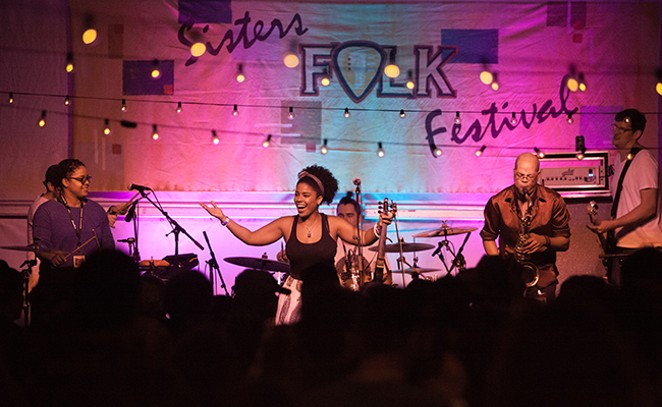
The festival has seen setbacks in recent years, with closures in both 2017 due to wildfire smoke and 2020 due to COVID. But now, with festival weekend happening in October, away from the heaviest impacts of fire season, the festival is marking its 25th year and is getting ready to rock this weekend.
In honor of those 25 years of festivals, the Source Weekly chatted with several of its past and present contributors, including this Q&A with Creative Director Brad Tisdel. The interviews have been edited for length and clarity.
Source Weekly: Sisters Folk Festival is celebrating its 25th festival this year—but the timeline is a bit more extended, right?
Brad Tisdel: The organization was started as a nonprofit in 1995 to produce the sisters Folk Festival. It was one venue at what is now the Sisters Middle School. They produced festivals in '95, '96, '97 and '98. I think in '98 it was at the present-day Meadows Village, just in kind of a dusty field, in a tent. They took 1999 off because they had lost a little bit of money in the '98 festival. And, and in 2000, we came back strong with Kathy Deggendorfer helping bring quite a few sponsors and different community members, and a little bit of a different model. And that was the same year that we started the Americana Project as well. And I was asked, basically in summer of 2002, to help create and direct the Americana Project, and we ended up doing that and over the course of the next five years. From 2000 to 2005, we created the Americana Project, the Americana Song Academy and My Own Two Hands as a fundraiser for those programs, and it kind of took off from there.
SW: Give people a sense of what the Americana Project is.
BT: It's the educational outreach program of the Sisters Folk Festival. For the past 22 years we've taught a class, if not two, at the high school, teaching guitar playing, songwriting, performing, recording—many guest artists, many different opportunities for young people to perform, and it's also about the history of roots music—blues, jazz, gospel, folk and all the different aspects that make up what is now Americana music.
Over time we've developed programming in partnership with the school district—it really encompasses K-12 music & arts, visual arts programming. The other part too—in 2007, Tony Cosby and Jayson Bowerman started the Luthier Program, and that was building guitars with high school kids in the wood shop. A couple years after that, we took over the management, got a grant, upgraded a lot of the machinery and worked in tandem with Jayson Bowerman and Tony really ever since.
And at this point, there's been maybe 470 or so guitars built and for a long time, they were building handmade ukuleles as well. Probably a couple hundred of those were built and that program to this day still exists, and they're building really nice handmade instruments.
SW: That's super cool. I wondered, there's now these kids, who for a long time have had this exposure to professional musicians and things. And I imagine some of those have gone on to become musicians themselves.
BT: The people that come up for me are kind of still involved. I don't even know what year it was, but probably 2007 or '08, we started the Song Academy for Youth, and we produced that for about 12 to 14 years, bringing different alumni students back who would then teach at the Song Academy for Youth, which was kind of modeled after our Song Academy that we've always done up there—Peter Smith who went on to create The Weather Machine and he's still active musically for sure. Laura Curtis is someone that I've always kind of gone to because she pursued a professional recording career and she's not doing that necessarily anymore as a pro, but she definitely still plays and writes and sings. There's a fella in town here that's still involved, Drew Harrison, who is going to be part of our staff at the Academy this year. And then Benji Nagel is also someone that lives in Sisters, has created a home in Sisters, has a family and still teaches and plays. He's active in a whole bunch of bands all throughout Central Oregon.
The thing that I appreciate most is the intergenerational connection between all these young people that have stayed really involved with us through My Own Two Hands and Americana and the Song Academy, and many of them have come back to teach and mentor.
SW: Yeah, that's so cool. That's probably what makes your festival so unique. So I guess the question out of that is, do you know of another festival that invests so heavily in the education and this kind of loop that you're talking about?
BT: That's a good question. I know that there are many other festivals that have either kids programming or kids' camps before the festival, that kind of thing. I don't know a lot that have partnerships with the local schools and a community of young people around the creative arts that has a similar or same kind of support. It's not that they aren't out there. I just don't know about it.
SW: Brad, you've been so instrumental (haha) in making this festival what it is today. Can you give us an overview of your own trajectory with Sisters Folk Festival?
BT: Well, thanks. And yet, I always have to be careful, you know, tooting my own horn because so many other people have been involved in so many different ways. Originally, I was a song contest finalist in the very first two years of the Sisters Folk Festival, and that's how I got connected.
In '95 I moved to Sisters. I was only involved as a song contest finalist the first couple of years, but I knew about it and then I started working in the schools in '97, and I was doing contract work with them around cooperative team building using music and drumming and some retreats that I helped create. I was a connecting point when it was actually Philippe Malin who told Kathy Deggendorfer, 'There's this guy in the schools, doing music stuff—you should talk to him.' They came to me in the summer of 2000 and said, 'We want you to help us start and create what we know we'd like to do, it's called Americana Project.'
My feeling was originally, I dig the history and the social significance of roots music but I'm a singer/songwriter and a musician first. So we have to get instruments in the hands of kids and teach them to write songs and perform and record and that kind of thing. So in 2000 that was the goal. Sisters Folk Festival didn't really have a budget for a person like me to do some of the work that I wanted to do. I had seen the song school at Rocky Mountain Folk Fest and I had attended a couple of years, late '90s. And so I came to Kathy asking if we could start our own songs school, and we did that at Caldera.
So I was sort of a connecting point between the Folk Festival and Caldera in starting the Americana Song Academy and then that was originally intended to be kind of like a master class for high school kids that were in our program.
All these local kids were really into it and so you know, fortunately it was a creative sort of canvas for me, Kathy and others, including board members of the Folk Festival to just try different things. We started My Own Two Hands because we needed a fundraiser to help fund the programming that was originally called Painted Strings, where I found acoustic guitars that had been donated to a pawn shop. Kathy had been at the Albuquerque Balloon Festival—this is like the long story, but we said, well, why don't we use guitars as a canvas for artists to create? And we did that with kids at the high school as well as professional artists and we raised almost $20,000, and went, well, that totally works. Then we were able to buy better instruments and get kids more engaged. And so between the schools, the community and key people at the Folk Festival, we just kind of continued to evolve and adapt and create new programming that worked complementarily with one another.
And so then all of a sudden there was this intergenerational thing that you know, community musicians and artists were going into the schools and knew about the kids who were evolving and developing as humans, that then would connect with those guys. And, you know, it was really cool to see friendships develop over generations, all around music.

SW: And then you started booking things and became artistic director, am I right?
BT: In 2003 I became the artistic director of the Folk Festival and I booked half of that, then went on to book 2004 through the present day. I was the executive director and artistic director from 2008 to 2014. We grew stages. Every festival and programming grew and we did stuff in the middle school. We started the Americana Project in the middle school in like 2005, that was kind of arts and music. Everything was evolving and developing and growing and actually getting bigger and kind of selling out every year. In 2014 we brought in a managing director to take care of the administrative and nonprofit side of things, and I went to creative director, so that I could concentrate on the artistic side. Then we hired Crista Munro as executive director in the summer of 2019. She's now the executive director which I'm very grateful for because she's excellent at a lot of things and I can concentrate on the creative direction of the organization.
SW: For those who just assume because there's folk in the title, that that's all the music there is. How do you push back against that sort of impression?
BT: The most gracious way to push back is to say that pretty much all music can be considered folk music, and there's a huge umbrella under Americana and roots music. That's basically what we present; it's Americana music, it's roots music, but it's super diverse and it's everything from hip-hop to some world music to blues, rock. We definitely honor traditional music but it's certainly not all you get at Sisters Folk Festival.
"The whole reason to get involved was to create a community that is a place I really wanted to live, and you can't do that expecting everybody else to step up and do it for you, right? When we very first moved here, maybe 1997, I got on the Community Action team, and it was obvious that we needed something that was going to draw that creative community together. People always think of Sisters as being this place with lots of artists and you know, arts-based economy, but it's because individuals are doing it.
"There was no real place where people could gather so I started working on that—trying to think, oh, maybe we will get the City to donate some money and we'll have a space, have an art center. And every model I looked at like that was one of those places where, when times got tough, people would say, 'I'm not paying taxes so they can do, you know, knitting classes there.' It really has to be independent.
"So where Sisters Artworks is, [the building] sat on the market and sat on the market and sat on the market. And I finally, we just made an offer—my husband and I personally purchased the property and remodeled it and made it into Sisters Artworks, which was a place for different artists to come. And basically, the rent was subsidized, super-cheap rent, but it had a bunch of different communal spaces. One of the main tenants was the Sisters Folk Festival because I'd been on that board for years. And so just over the years as they grew, they would take over more and more of the office space. I got interested in creating the project that I'm doing now which is through the Roundhouse Foundation, the Pine Meadow Ranch.
"Over the years, I saw how important it was that we had a really strong not-for-profit presence, organizations like Sisters Folk Festival, and the Sisters Rhythm and Blues festival, and the Quilt Show and the rodeo—that they all were really strong and focused on creating their own programming. And then also, a really strong for-profit sector, like all the different galleries and places that really support people being able to make a living through the arts.
"I told the Folk Festival, I'm not doing this landlord for this particular space for the rest of my life, but let's figure out a way that you can buy the building. We offered to sell them that building for the same price we paid for it from the city in 2005, and we had done a majority of the remodeling. We were able to find funding plus some so that they could purchase the building, and it worked out really well."
"I was participating in an Earth Day Cleanup with Tony Cosby, who's the woodshop instructor at Sisters High School, and also the engineering instructor. He was putting the bug in my ear ...'You know, what do you think the possibility would be of building guitars at the high school level?' And I thought about it a little bit and I said, 'Tony, I think you're crazy. I don't think you can really do it.' He said, "What if you had all the support of a company like Breedlove [Guitars] and the resources and the know-how and stuff?'
"We started the [Luthier] program in 2006 and we've been building guitars at the high school ever since.
"I think at last count there's something in excess of 470 guitars that have been built by students at the high school. And for me, the coolest thing about the program is, it's been supported by the Sisters Folk Festival—sort of the charitable fundraising arm, but it also brings in the brightest and best in the school as well as some kids that are on the margins—kids that might otherwise slip through the cracks. They never saw the relevance of math classes, for example. There's a lot of trigonometry and other basic algebra problems in guitar building. And once you see the application, once you see a practical application for those types of skills, all of a sudden mathematics, you know, math classes, algebra, pre-algebra, trigonometry... those subject matters have a lot more relevance, and I had a lot of students come up to me and say, 'I never really understood why we had to learn this stuff,' and then they take this class and all of a sudden its clicks and you see the interest levels rise. Some kids that are on the margins of maybe dropping out or failing out come back into academic proficiency as a result of their engagement with a program like that, and that's really, really gratifying."
"Sisters Folk Festival started in a very small way. There were just a handful of people involved with putting it on. It was truly a small-town event. It was so exciting when we first noticed people coming all the way from Bend! Soon we saw people coming from California and other far-off places and it was amazing. Throughout this early-growth period it became clear that this was a community-owned event and a bunch of smart and talented people started pitching in. Somehow the budget for talent grew and bookings became more impressive than ever.
"I have designed posters for the festival for 20 years or so. The first one featured several different hands on the neck of a guitar. The body of the guitar was an old Martin and the headstock was that of the distinctive Breedlove, a valued sponsor. The concept was to show the evolution from traditional to contemporary. The hand on the old Martin was Doc Reno's, a Bend violin maker who passed away shortly after. The hand at the top was a young woman's, modeled by Valori Wells, who has gone on to fame as a fabric artist. Between was the hand of Jim Cornelius, co-founder of the festival, along with others. I tried to make this poster say something about what the festival was about. From there I did a series called 'Local Treasures' that featured local musicians as models. Then I went with animals, starting with 'Buck.' He had a pompadeer hairdo, a harmonics rack and an ear that featured a 'deer ring.' Our audience by that time needed no visual explanation of what a folk festival was. From then on the posters have been all about visual entertainment—quirky and fun.
"I have benefitted tremendously as a local artist both with poster design and musical performances. I feel fortunate to be a community member in support of an organization that is all about something I truly love."

